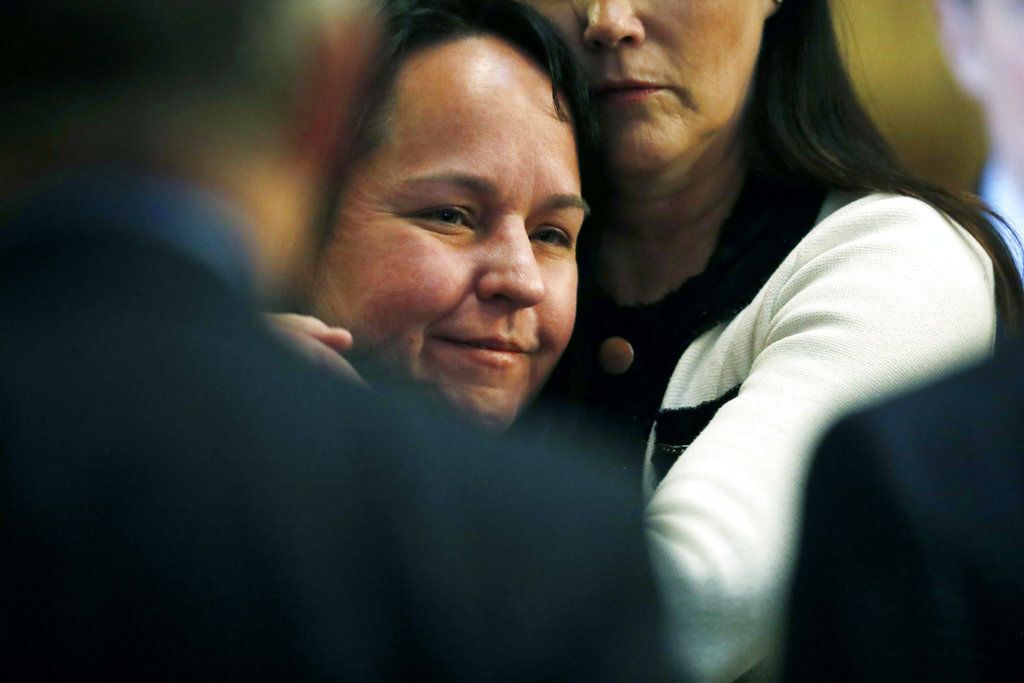White House reaching out to Republicans about a second bipartisan infrastructure package
Senior White House officials are holding “informal discussions” with outside experts and congressional officials on how to split off a second, targeted bipartisan package from a larger reconciliation package expected to contain the remainder of President Joe Biden’s infrastructure proposals, multiple individuals involved in the talks tell the Washington Examiner.
Work toward a second bipartisan deal comes after the president called on Congress to send an already hashed-out bipartisan infrastructure package – which includes nearly $1 trillion to modernize the nation’s roads, bridges, airports, broadband, and other physical infrastructure networks – and a larger reconciliation package expected to pass with only Democratic votes to the Oval Office in tandem.
The emerging second cross-party package would likely focus on expanding child and family incentive programs, a topic that has garnered past interest from private sector conservatives and Republican lawmakers.
Senior advisers to the president Gene Sperling and Neera Tanden and a handful of other economic aides are leading the discussions, according to individuals with knowledge of the talks. Some of the outreach has taken place in virtual briefings, a mainstay of the Biden administration’s policy and communications teams, while some individuals approached by the White House told the Washington Examiner they were called directly by administration officials.
The main provisions likely to be included in any bill are a long-term extension of the expanded, fully refundable child tax credit outlined in the $1.9 trillion American Rescue Plan, something Biden’s team has made clear is a red line for the president, and a paid parental leave plan, something Republicans favor over the comprehensive paid family plans offered by liberal Democrats.
Other suggestions include expanding the aperture on how states can allocate direct aid appropriated through the American Rescue Plan, a tactic the Biden administration just employed as part of the president’s plan to combat gun violence and rising national crime.
“There’s this recognition that family policy is this wedge issue,” one policy expert familiar with the White House’s outreach efforts said. “And if the Republicans let Democrats walk away with it, it’s a problem.”
Still, there are significant roadblocks toward reaching another bipartisan deal, the least of which is a lack of communication and political consensus among Republican economic centrists – such as Louisiana Sen. Bill Cassidy, Arkansas Sen. Tom Cotton, Missouri Sen. Josh Hawley, Utah Sen. Mitt Romney, and Florida Sen. Marco Rubio – on what an acceptable family plan would look like.
“I think if Republicans acted as a caucus, if Republicans were organized, they could push a genuine bipartisan negotiation on the family,” the policy expert continued. “The open question is, do they get their act together and approach the White House with a common set of priorities? And so far, I haven’t seen them leaping at the opportunity to do that.”
Biden and his top aides have stated for months that the administration is simultaneously pursuing multiple legislative tracks for the proposals included in the American Jobs and Families plans. Still, the White House has deferred to congressional leadership and sought to avoid publicly endorsing, or shooting down, the overwhelming majority of legislative rumblings. Senior White House officials, including press secretary Jen Psaki and senior adviser Anita Dunn, repeatedly tell reporters that the president’s only red lines are provisions that raise taxes on families earning less than $400,000 per year and “inaction” on the subject.
“The president had two red lines in this entire process that we have stated over and over again. The first and most important was inaction, which was not an option for him,” Dunn added during a Friday event. “And the second red line has consistently been, as you know, that he is not going to agree to tax increases for people who make less than $400,000 a year.”
“We’re at the beginning of a reconciliation process. You have the House and the Senate that both have their own processes,” she continued. “It’s a congressional process and a negotiation, so we understand that there will be a lot of back and forth between now and then.”
Similarly, the White House would not acknowledge the informal families plan discussions when pressed by the Washington Examiner but reiterated officials would “welcome” any attempts by Congress to advance Biden’s proposals in stand-alone bills outside of budget reconciliation.













